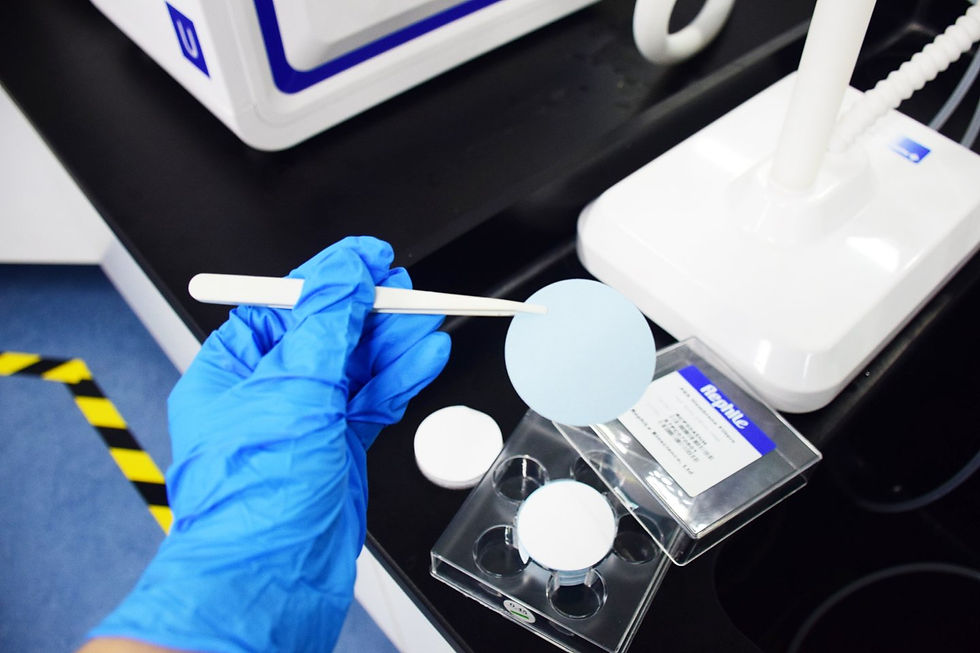Chimeric gets US backing for “natural killer” cancer trial
- Doug Bright

- Sep 14, 2023
- 2 min read

Australian med-tech Chimeric Therapeutics has secured the support of a United States cancer centre for a trial of its “natural killer” cell therapy for newly-diagnosed patients with acute myeloid leukemia.
The clinical “Advent_AML” phase-1B study, designed to enrol up to 20 patients at the University of Texas’ MD Anderson Cancer Center, will evaluate Chimeric’s “CHM 201” therapy in a novel first-time combination with standard-of-care therapy.
The company says the study is designed to assess patients who are not eligible for intensive chemotherapy or allogeneic stem cell transplant. It will follow a dose confirmation cohort of patients with relapsed or refractory AML to assess the safety of the treatment.
As the trial progresses beyond dose confirmation, it will also become the first to evaluate cellular therapy in newly-diagnosed AML patients.
This exciting new clinical trial aligns with the emerging evidence that cell therapies provide the best clinical outcomes in the earliest line of treatment. By combining CHM 0201 with the current standard of care for AML patients, we may be able to significantly enhance the outcomes for these patients. Chimeric Therapeutics chief medical officer Jason B. Litten
The company’s CHM 0201, or “Core NK” platform, is a transformative technology designed to enable the accelerated development of multiple next-generation, off-the-shelf NK and CAR (chimeric antigen receptor)-NK products. CAR T-cell therapy is a new form of immunotherapy that uses altered T-cells to target cancer cells.
Natural killer cells in humans can recognise and kill cancer cells, but they are often not robust or active enough to overcome cancer as it grows. Core-NK platform cells are made by activating and expanding natural killer cells to make them more active and robust, effectively “supercharging” them.
Allogeneic cell therapies rely on a single source of cells to treat many patients. Cells are collected from a donor sample to create a master cell bank (MCB), which is then used as a source from which new cell populations are created.
They can then be processed according to the demands of the specific therapy and the final cell populations are used to treat multiple patients.
While allogeneic therapies are better suited to satisfying “off-the-shelf” supply models, such as where emergency treatment without delay might be required, they can sometimes also increase the risk of eliciting an unwanted immune response within a patient. In such cases, immune-suppressive therapies might be administered in combination with allogeneic products.
Importantly, Chimeric’s study has received investigational new drug application (IND) clearance by the US Food and Drug Administration and is expected to open for enrollment by the end of the year.
AML is the most common acute leukemia in adults with a median diagnosis age of between 65 and 72 years. Despite treatment advances, patients who are not eligible for intensive chemotherapy or allogeneic stem cell transplant patients currently have limited therapeutic options.
Outcomes for the high-risk subgroups are poor, with a median overall survival rate of just six to nine months for newly diagnosed patients and 2.4 months for those with relapse or refractory disease.
Under the terms of the clinical study agreement, Chimeric will provide its CHM 0201 drug and partial financial support for the study. It will also be supported with grant funding from multiple sources, including the Illinois-based Gateway for Cancer Research.
Is your ASX-listed company doing something interesting? Contact: office@bullsnbears.com.au


